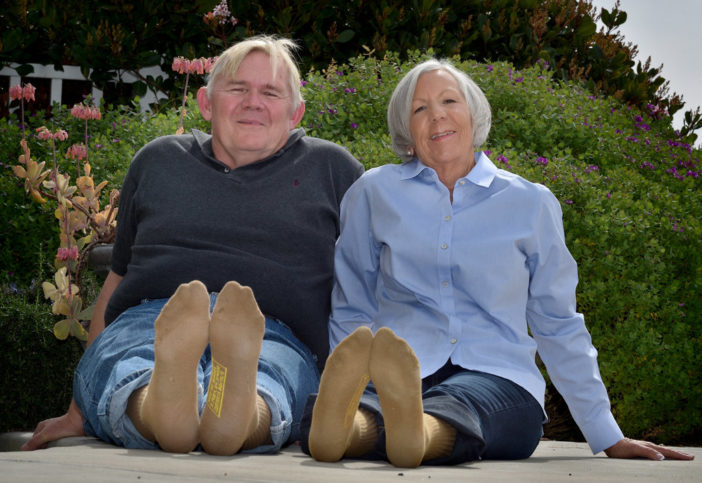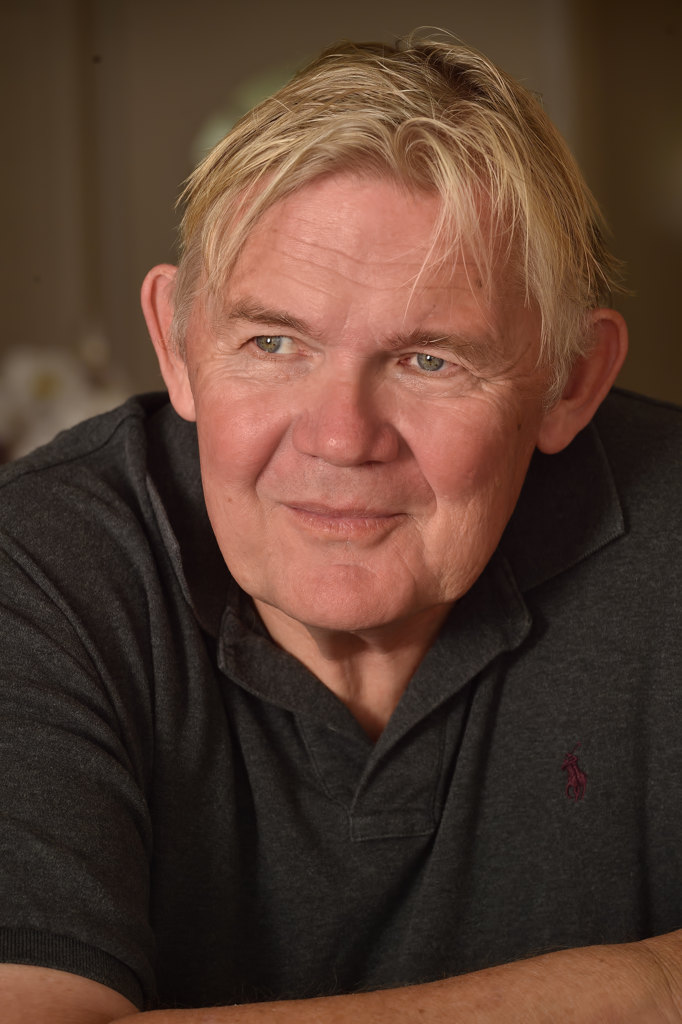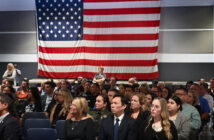On Aug. 26, 2009, there was a knock on the door of the San Clemente home of Jim and Carla Hogan.
When they opened the door, two Marines and a Naval chaplain greeted them.
The couple knew immediately the news wouldn’t be good.
Their son, Lance Corp. Donald J. Hogan, who was deployed less than three months earlier, was killed in the Helmand province in Afghanistan.
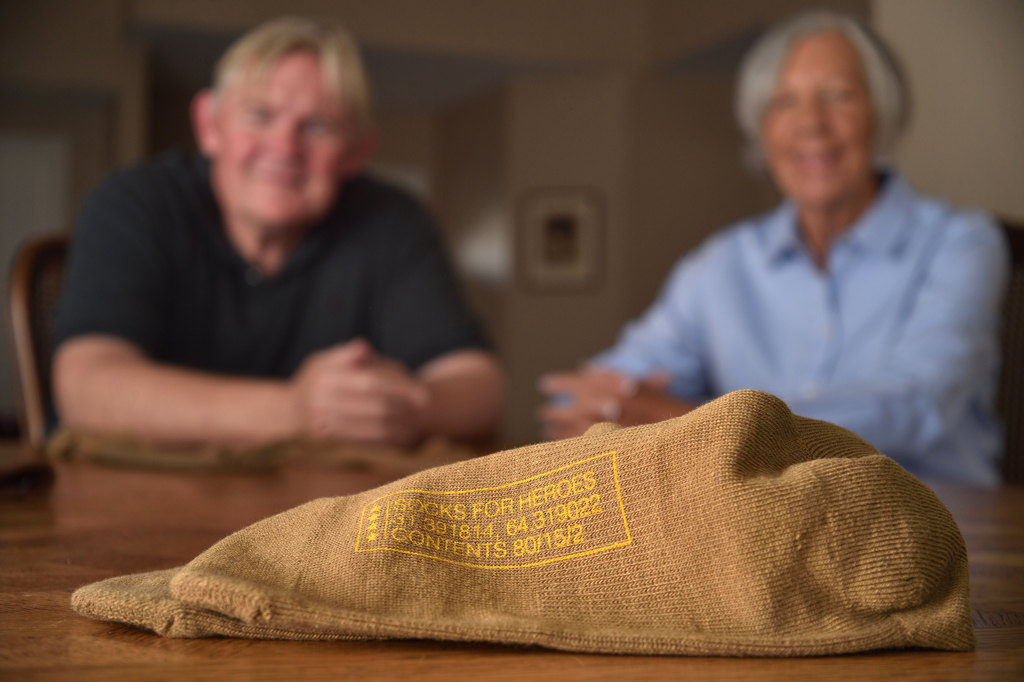
The “Socks for Heroes” stamp is shown on the bottom of a pair of socks destined for soldiers serving overseas.
Photo by Steven Georges/Behind the Badge
The young Marine was on patrol, working as a mine detector, when he saw an insurgent pulling a kite string to trigger an improvised explosive device (IED).
Hogan could have fled to protect himself, but instead, the lance corporal pushed the nearest Marine out of danger, and then put himself between the IED and the rest of the Marines on the patrol.
Hogan, whose lifelong dream was to serve his country, paid the ultimate price.
He was killed instantly.
“When we picked up his remains and met his casket at John Wayne Airport,” Jim Hogan said, “they put him in the hearse. We’re in a van following. There are eight Highway Patrolmen acting as an honor guard. They shut down the freeway and as we got closer, on each of the overpasses, there were people lined up. When we got to Mission Viejo … at Crown Valley Parkway, there were two firetrucks with ladders extended with the American flag and fireman all on top saluting.”
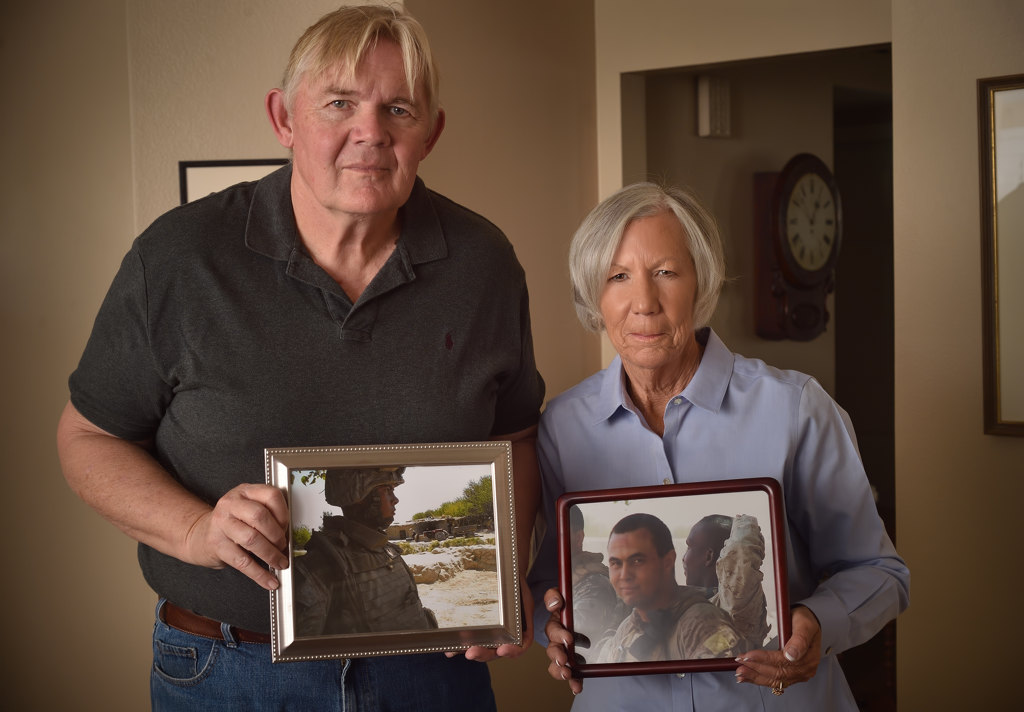
Jim Hogan and his wife, Carla, founder of the nonprofit organization Socks for Heroes, hold photos of their son, Donald, 20, a U.S. Marine who was killed in action.
Photo by Steven Georges/Behind the Badge
Following Hogan’s death, the Marines awarded him the Navy Cross, the nation’s second-highest award for valor in combat.
In the weeks and months after his death, the Hogans were moved by the level of care and concern the Marines bestowed on them.
“Donald was our brother and you are part of our family,” the couple was told.
“Because we live right next to Camp Pendleton, they took really incredibly great care of us,” Carla Hogan said. “They were here all the time and if there was a ceremony going on, they invited us. They kept us close. I just fell in love with these people.”
When their son’s unit was re-deployed to Afghanistan, the Hogans asked the platoon commander what they might be able to do to repay the kindness they received.

Jim Hogan and his wife, Carla, talk about the nonprofit organization they started, Socks for Heroes.
Photo by Steven Georges/Behind the Badge
One guy told them, “You could send us some socks.”
Jim Hogan didn’t question the request.
He went into a Walmart, purchased a couple hundred pairs of socks, and shipped them off to the unit.
That was May 11, 2011.
Since then, “Socks for Heroes,” the nonprofit started by the Hogans, has shipped over 707,000 pairs — or more than 59 tons — of socks to soldiers, sailors, airmen and Marines serving in Iraq, Afghanistan, and other areas of the Middle East.
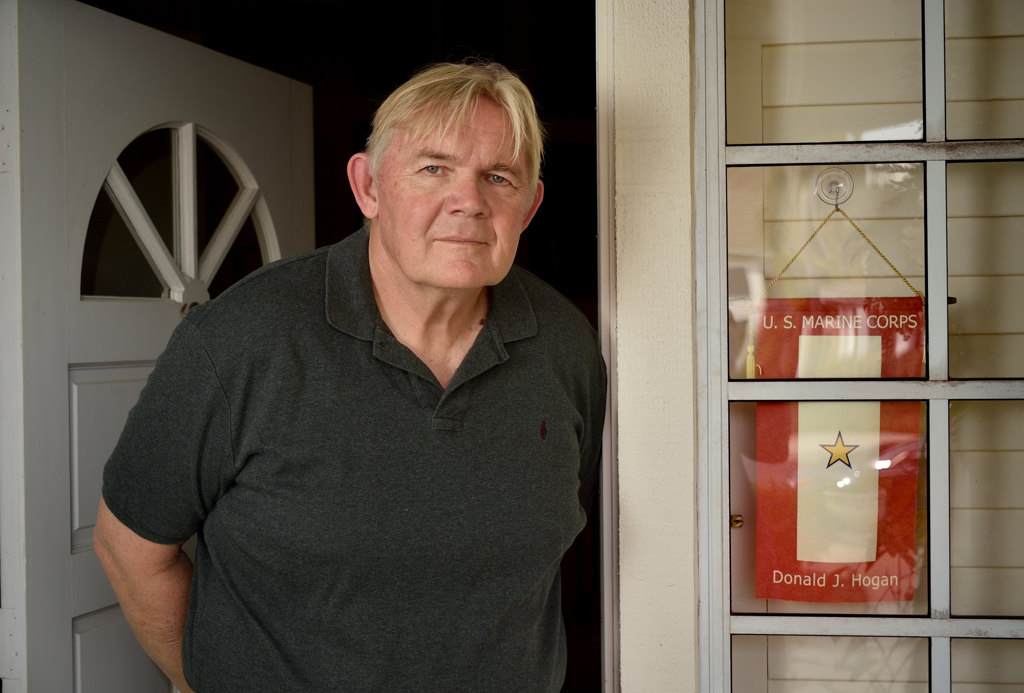
Jim Hogan proudly displays the gold star honoring his son, Donald, at the entrance to his house in San Clemente.
Photo by Steven Georges/Behind the Badge
Early on, as the Hogans began shipping more and more socks, they could see it would be an expensive proposition.
So they went to a farmer’s market with a bridge table with a handwritten sign asking for donations.
“If we collected 300 bucks, we’d be so excited,” Carla Hogan said. “We could buy 150 pairs of socks.”
Then other units were sending letters asking for socks.
The Hogans named their operation “Socks for Heroes.”
“It’s just gotten bigger and bigger,” Carla Hogan said. “These kids were like our surrogate children. So if they ask you for a football, you’re going to figure out a way to get them a football.”
Now known nationally, the Hogans still operate Socks for Heroes from their home.
They take no salaries or pay salaries.
“Using such a minimal cost model, over 90 cents of every dollar donated goes toward socks, shipping, and programs benefiting Marines and their families,” Jim Hogan said.
The operation is part of the nonprofit Southern California Marine Corps Support Group, which provides grants enabling military families to take advantage of recreational programs such as summer camps and swimming lessons.
To date, the Southern California Marine Corps Support Group has provided more than $150,000 in these grants to Marine families at Camp Pendleton.
The Hogans said they will continue sending socks for as long as they get requests.
“Anyone who has ever served in a combat zone will tell you the importance of socks to an infantryman,” Jim Hogan said. “Long hours on their feet in wet and muddy conditions, with no laundry facilities, literally destroys them. But without them, the infantryman’s ability to complete his mission is compromised. According to one Marine officer, socks come after ammo and chow in importance.”
 Behind the Badge
Behind the Badge
